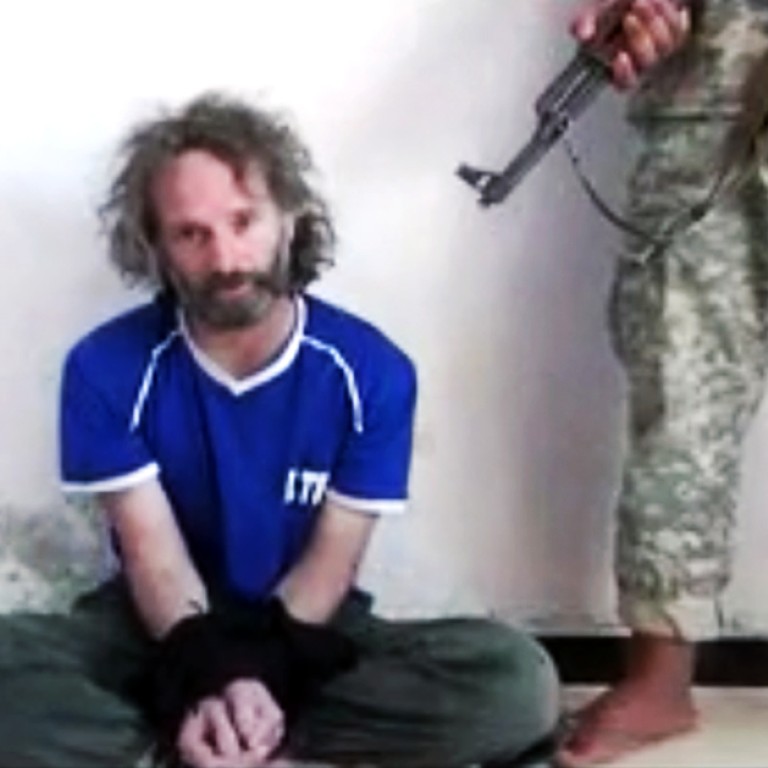
Update | Relief in US as Syrian jihadis free journalist hostage after James Foley’s killing
Days after one American reporter's beheading, militants in Syria free another, prompting gratitude from John Kerry
The United States has found something of a reprieve from the killing of an American journalist with the release of another freelance reporter who had been held hostage for nearly two years by an al-Qaeda-linked group in Syria.
Peter Theo Curtis, who wrote under the byline Theo Padnos, was held in Syria for almost two years by the al-Nusra Front, until he was released into the custody of the United Nations under circumstances that have yet to be fully explained.
The release of Curtis, 45, appeared to have been aided by Qatar, which said it had "exerted relentless efforts" to win the American's freedom.
Qatar is a leading supporter of the Syrian rebels fighting to oust President Bashar al-Assad and has been involved in mediating past hostage releases.
"Particularly after a week marked by unspeakable tragedy, we are all relieved and grateful knowing that Theo Curtis is coming home after so much time held in the clutches of [the al-Nusra Front]," US Secretary of State John Kerry said.
If you don’t do anything, I’m finished. I’m dead. They will kill me
The American reporter killed, James Foley, whose beheading was shown in a grisly video released last week, had been a captive of the Islamic State, a group that broke away from al-Qaeda and captured a large swathe of northern Syria and Iraq.
Curtis' release is likely to renew questions about the intentions of different militant groups in Syria and Iraq and how the US should deal with hostage takers.
US President Barack Obama was briefed on the release as he wrapped up his holiday.
A senior administration official said Curtis was released in the Golan Heights, where he was met by US government personnel who took him to Tel Aviv, Israel.
In a video obtained by Associated Press and dated July 18, 2014, Curtis sits cross-legged on a floor with his hands bound and appears to read from a sheet placed in front of him on the floor. Addressing the US and European governments, he pleads for them to contact a named intermediary before it is too late.
"They have given me three days to live," he says as a man holding an assault rifle and dressed in camouflage stands next to him. "If you don't do anything, I'm finished. I'm dead. They will kill me. Three days. You have had 20 days, and you've done nothing. " He does not specify any demands, only urging Western governments to make contact with the intermediary.
Foley's captors had demanded €100 million (HK$1 billion) from his parents and political concessions from Washington. Neither obliged, the authorities have said.
Betsy Sullivan, a cousin of Curtis, said intermediaries involved in the negotiations had threatened the family and made ransom demands of varying amounts. But the family said that they had been assured by Qatari representatives that no money was paid for Curtis' release.
The Obama administration used Curtis' release to insist it was determined to find those responsible for Foley's death and pursue the release of other hostages. Ambassador to the United Nations Samantha Power said: "So long as any American is held captive, the United States government will do everything in our power to bring them home safely."
Curtis has written for the and in 2011 wrote a book called which studied the radicalisation of disaffected youths.
He was held in Syria with US photojournalist Matthew Schrier, who escaped in July last year after being held for seven months, according to . Schrier told the newspaper he escaped through an opening in his cell wall, which he reached by standing on Curtis' back. He tried to help Curtis through but he became stuck.

